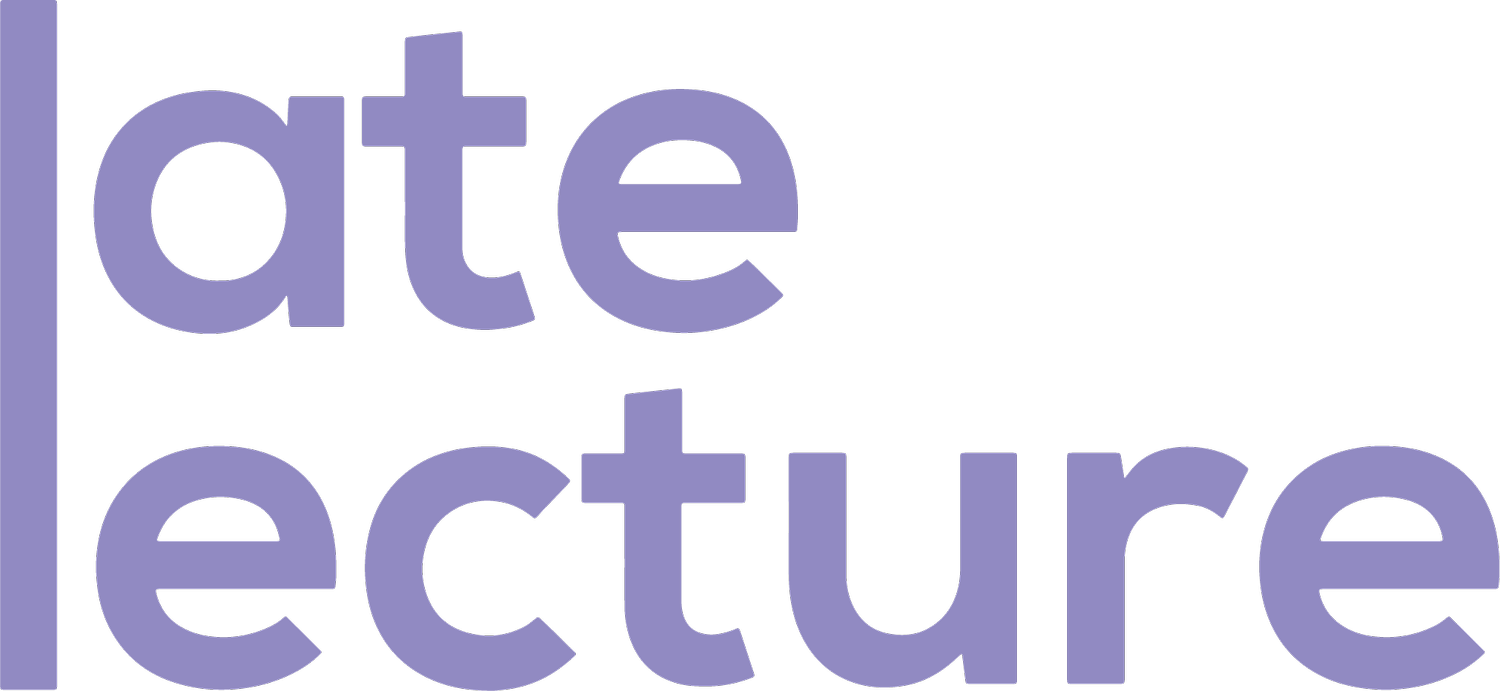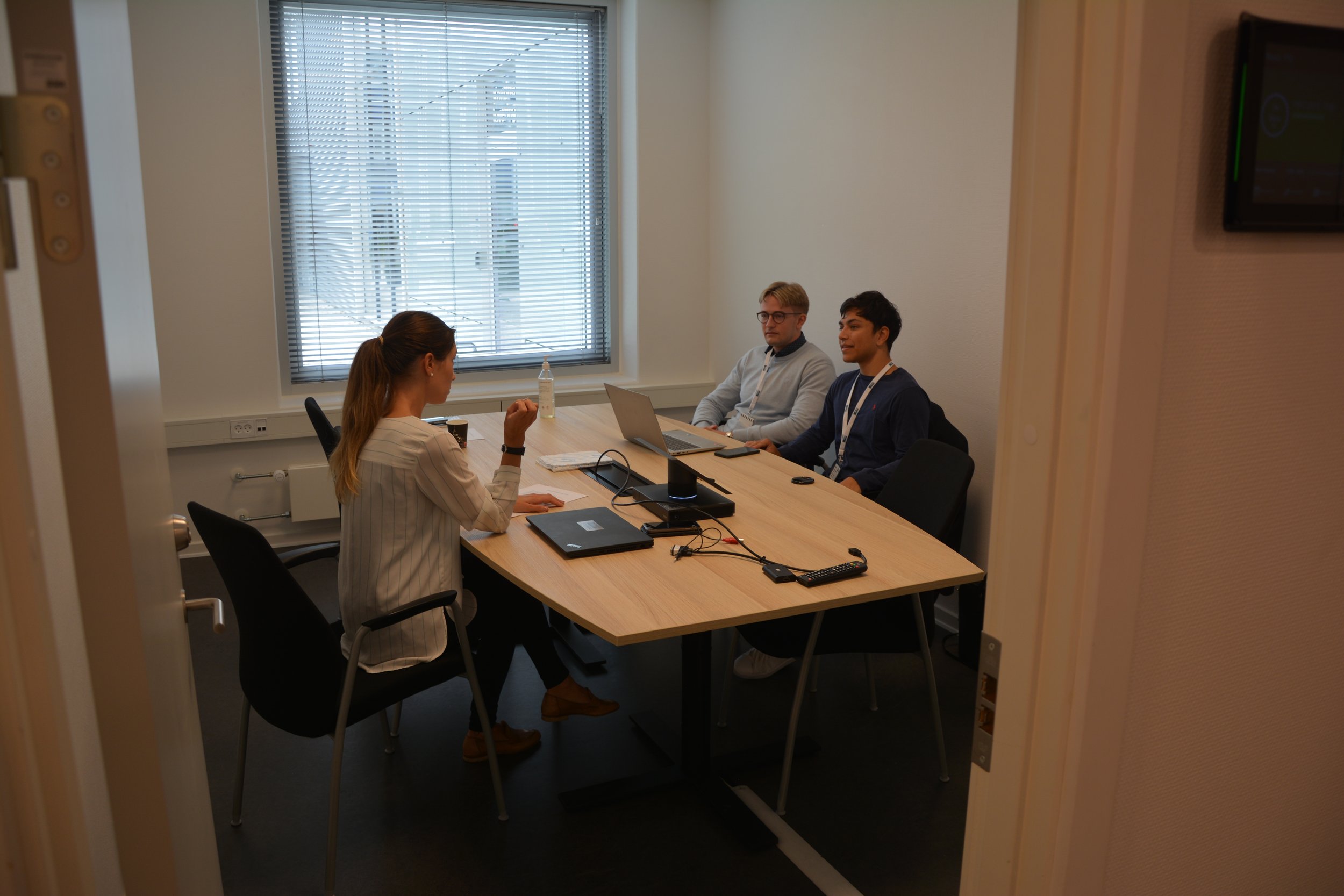Materializing Success: A Journey from DTU Engineer to Department Director of Materials Test and Analysis at FORCE Technology
In this short read, meet Nicole, Department Director of Materials Test & Analysis at FORCE Technology. Nicole graduated from DTU four years ago with an industrial PhD in Bioengineering and Biomedical Engineering. With a background as a Product Quality Manager, she has ascended to her current role, leading the way in materials science and engineering at FORCE Technology. Nicole's journey exemplifies the possibilities created when blending academic excellence and practical leadership. In the upcoming interview, she will delve into the realm of materials testing and analysis, the essence of effective management, and the profound impact of her DTU education on her professional journey.
FORCE Technology, a Danish company with roots dating back to its establishment in 1940, has established itself as a prominent provider of engineering and consultancy services. Headquartered in Brøndby, Denmark, the company boasts a diverse portfolio of services that cater to a broad spectrum of industries. With a strong global presence and a reputation for technical expertise, FORCE Technology plays a vital role in guiding its clients toward innovation and excellence.
At the heart of its offerings, FORCE Technology's consulting division comprises a team of highly skilled experts specializing in various technical and engineering domains. This extensive knowledge base allows the company to deliver tailored solutions designed to address the unique challenges faced by its clients. FORCE Technology's prowess extends across a wide spectrum of technical domains, including but not limited to acoustics, IoT, maritime, laser technology, and materials and testing. With a diverse portfolio of skills, the company is well-equipped to provide innovative solutions in these areas, catering to the unique needs of clients across various industries.
Lastly, the company is also renowned for its rigorous testing and certification services. FORCE Technology evaluates product performance, materials, and systems. Clients benefit from the company's services, which include product certification, failure analysis, and quality assurance. It is here that Nicole Ciacotich and her department in Materials Test and Analysis spend most of their time.
A Background In Materials Testing and Analysis
Nicole is currently the Department Director of Materials Test and Analysis at FORCE Technology, a role responsible for leading teams of engineers, specialists and technicians to complete projects within the material science domain. Before taking on this role, she acquired an Industrial PhD fellowship in collaboration with Elplatek A/S GalvaNord and DTU. Here, she had the chance to further develop her master's thesis project—an electrochemically deposited alloy coating with antibacterial activity. At the same time, she was on the fast track to a career in the industry.
After completing her PhD, she continued in the company as a Product Quality Manager. After some time, she received an offer to switch to FORCE Technology, where she has remained since. Throughout this journey, she has had the opportunity to work both as a specialist and in leadership and project management roles. The common thread throughout has been the technical subject of material science.
Materials testing and analysis are crucial processes in various industries used to understand the properties, characteristics, and behavior of materials. It involves a systematic examination of materials to determine their suitability for specific client applications, assess their quality, and identify any defects or weaknesses. This process typically includes a mix of experimental techniques, measurements, and analytical methods. This, in combination with expert consultancy, is the service that Nicole and her department provide to customers, and its influence is only growing. Speaking about new trends in the industry, Nicole says:
“We clearly see the current industry trends in our customer requests... a lot of focus, for example, has come on sustainability, green transition, and digital transformation. Companies are aligning their business strategies to meet their sustainability goals.”
Excelling In Management With A Technical Background
As Nicole gained more experience in her role at Elplatek A/S GalvaNord, she discovered a passion for fostering productive and harmonious work environments. Over time, it became clear that management practices suited her well, and a decision was made to give it a try.
When asked about the crucial skills of a good manager, Nicole's first answer was effective communication. She remarked that it lies at the heart of successful management. Specifically, open and transparent communication not only keeps teams informed but also encourages collaboration and trust.
In continuation of this, one-on-one meetings between managers and team members play a pivotal role in understanding individual needs and concerns. Listening attentively during these meetings is crucial, as it demonstrates respect for employees' perspectives and helps identify potential areas for improvement.
“Recognizing the strengths and weaknesses of your employees and colleagues is crucial, and one-on-one meetings serve as a valuable tool in achieving this. Embracing the role of an active listener during these interactions can significantly enhance this process and is a sign of a great manager.”
Lastly, honesty is also a fundamental aspect of good management, according to Nicole. Being forthright about expectations, feedback, and company goals cultivates trust within the team. Honest communication not only builds credibility but also fosters a culture of integrity, where employees feel comfortable sharing their thoughts and concerns.
The Creation Of Value Through Consulting
Having discussed the technical aspects of her job, Nicole also elaborated on how FORCE Technoloy delivers its services in the form of consultancy. She describes it as the driving force behind transformative progress in industries worldwide.
“At its core, consultancy involves experts collaborating with organizations and clients to tackle complex challenges, improve operations, and achieve specific goals.”
One crucial aspect of consultancy for Nicole is problem-solving. Firms like FORCE Technology leverage their deep industry knowledge and fresh perspectives to help clients overcome technical obstacles efficiently. A clear analytical mindset is the best quality for a consultant, Nicole emphasizes.
Another crucial factor in consultancy is innovation. Nicole mentions several cases where the solutions necessitated innovation not only on a technical level but also on a strategic level. FORCE Technology, for example, actively engages in research and development, staying at the forefront of technological advancements. They integrate these innovations into client operations, ensuring competitiveness and sustainability.
“In all industry cases, innovation plays a role. Client problems are complex, and creativity is needed. Sometimes the problems may seem straightforward, but that can quickly change, and suddenly you have to be innovative in your approach.”
The synergy between innovation and consultancy is natural. When you are faced with real-world problems, the solutions require research-driven approaches, customized strategies to meet unique client needs, and empowered organizations with knowledge transfer. This isn’t merely theoretical; it’s a tangible, value-driven partnership that propels industries forward.
An education at DTU in the back mirror
When asked about how her education at DTU has shaped her career, Nicole mentions that her education at DTU has played a significant role in preparing her for her current career, both as a specialist and a manager. Firstly, it strongly contributed to her technical background and this has been invaluable in her work. While she doesn't use every single theoretical concept she learned in her courses, having that knowledge has laid a solid foundation for her understanding of engineering principles. This foundational knowledge often helps her approach complex problems with a deeper insight, even if the day-to-day tasks don't always require it.
“Even though I am not using theoretical concepts on a dailiy basis, it is still part of the core of what I am doing. The education shapes the way you think, and at DTU, you get good at problem-solving.”
Nicole then mentions one of the aspects of her education that she continues to rely on heavily, which is project management skills. Nicole gained a lot of experience with these while working with diverse groups of people on various projects. Collaborating with classmates from different backgrounds and perspectives taught her how to communicate effectively, manage deadlines, and adapt to different working styles. These skills have proven to be very useful in her career, as engineering projects often involve interdisciplinary teams and tight schedules.
Lastly, she wanted to point out the flexibility present in an education from DTU. It was clear to her that in today's rapidly changing world, it's essential to remain open to new opportunities and not be overly rigid in your career aspirations. Sometimes, unexpected paths can lead to exciting and fulfilling outcomes. This was exactly what Nicole did when she embraced change and pivoted from specialist to management.
“Your educational background doesn’t limit your potential career options. Having a technical foundation can actually be a valuable asset in diverse fields. Don’t be afraid to explore areas beyond your immediate expertise.”
She thereafter pointed out that students should take the initiative to acquire new skills, network with people in their desired field, and seek out opportunities that align with their passions. Success often requires proactively shaping your path.

